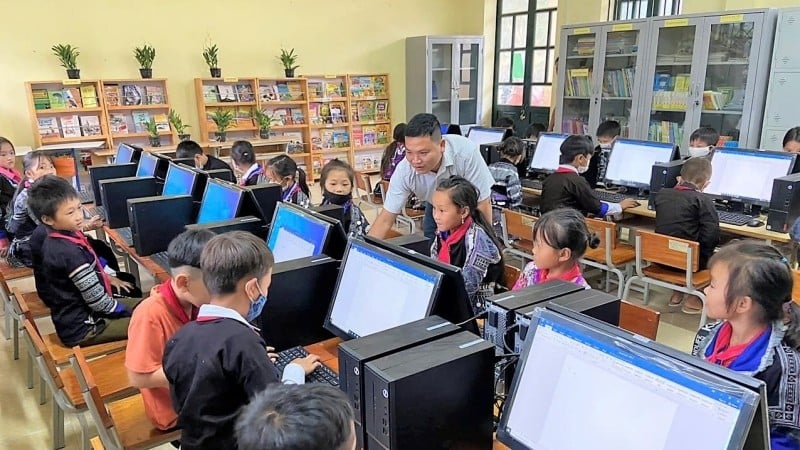
On September 15, 2025, the Government issued Resolution No. 281/NQ-CP on the Action Program to implement Resolution No. 71-NQ/TW of the Politburo . This is a decision that demonstrates a strategic and humane vision, contributing to the stable and sustainable development of Vietnamese education.
Education and training have always been identified by our Party and State as the top national policy, the key to opening the door to knowledge, building a solid foundation for industrialization, modernization and international integration. In that panorama, textbooks play a very important role, creating a solid foundation of knowledge for future generations. Throughout the history of Vietnamese education, textbooks have always been associated with each stage of the country's development.
Before 2020, the whole country used a common set of textbooks according to the 2006 program, ensuring uniformity and consistency, but also revealing limitations in encouraging creativity and diversifying learning materials. By 2018, the Ministry of Education and Training issued the new General Education Program, with the spirit of "one program, many sets of textbooks".
From the 2020-2021 school year, the first sets of books according to the new program will be put into use, starting from grade 1. Accordingly, the whole country has 5 approved sets of books including: "Creative Horizon", "Connecting knowledge with life", "Learning together to develop capacity", "For equality and democracy in education" and "Canh Dieu".
At that time, the book series was expected to create healthy competition, promote the quality of compilation, and at the same time expand the choices for teachers and students, improving the quality of teaching. However, after a year of implementation, through natural selection, from the original 5 book series, only 3 remained: "Canh Dieu", "Connecting knowledge with life" and "Creative horizon".
Notably, research, surveys and feedback from teachers show that the differences between the sets of books are not many, mainly in the arrangement of knowledge taught at what time of the school year, while the price of the sets of books is quite high, difficult to reuse, causing financial pressure for many parents. The parallel existence of sets of books also makes the management and organization of teaching and learning unsynchronized, causing difficulties in testing and evaluation.
After 5 years of implementing the textbook replacement cycle (until the end of the 2024-2025 school year), these shortcomings have become more evident. The problem of efficiency, uniformity in education and social equity has required appropriate adjustments.
After 5 years of implementing the textbook replacement cycle (until the end of the 2024-2025 school year), these shortcomings have become more evident. The problem of efficiency, uniformity in education and social equity has required appropriate adjustments.
Resolution No. 281 of the Government has demonstrated an open-minded, objective spirit, based on reality, to set out strategic directions: ensuring the provision of a unified set of textbooks nationwide for use from the 2026-2027 school year; implementing the roadmap to 2030 to provide free textbooks to all students.
This policy is not about "going back to the past" but about summarizing and drawing lessons from practice, combining innovation and stability to find suitable solutions to ensure sustainable development of education in response to the demands and requirements of life.
The implementation of a unified set of textbooks nationwide in the coming time not only solves the problem of synchronization but also demonstrates profound humanity.
First of all, it is about creating fairness in access to knowledge because in many remote areas, ethnic minority areas, choosing and accessing many sets of books is difficult. If the whole country uses a common set of books, all students, regardless of region, will be able to study the same content, thereby reducing disparities and creating equal development opportunities.
The unification of textbooks also contributes to saving social costs. In the context of many families' lives still being difficult, having to buy new books at high prices and constantly changing them puts great pressure on millions of parents. The policy of providing free textbooks to all students by 2030 further affirms humanity, in line with the spirit of building a learning society, not leaving any child behind due to economic conditions.
The Politburo issued Resolution 71-NQ/TW on breakthroughs in education and training development, emphasizing the need for a unified set of textbooks nationwide and by 2030, textbooks will be provided free of charge to all students.
In addition, a common set of books helps the management, testing and evaluation in education to be convenient, transparent and objective. Exams, periodic tests, the construction of question banks, and the training and development of teachers all have a unified basis, thereby ensuring the quality of teaching and learning, avoiding dispersion and different styles in each place.
The new policy clearly affirms the Party and State's commitment to caring for and investing in education. Because the Government's Action Program to implement Resolution 71 is not only about compiling a set of books, but also includes modernizing learning materials, building a digital ecosystem, and connecting with open learning resources. This will contribute to bringing Vietnamese education closer to advanced trends in the world, while still ensuring its suitability to the country's cultural and social characteristics.
In the context of a major policy being issued, it is inevitable that there will be different opinions. Besides the agreement and support of a large number of teachers, parents, and students, there are also opinions expressing disagreement. This is completely normal, showing the democratic spirit in society. However, it is worrying that some reactionary and extremist individuals and organizations have taken advantage of this issue to accuse it of "a return to a monopoly mechanism", "imposition", or even "a step back in reform".
Standing out among them is the terrorist organization Viet Tan, which is trying to distort Vietnam's "knowledge monopoly". Millions of students will learn the same tone, the same interpretation, the same framework, and then proclaim this as a "retrogressive revolution", showing the deadlock in Vietnam's education policy.
These arguments are completely untrue because the issuance of a unified set of books does not negate the value of the previous policy of multiple sets of books. It is a necessary testing phase, helping to clearly identify the advantages and difficulties.
After 5 years of implementation, the results showed that the model of multiple sets of books was not as effective as expected, even causing waste and lack of uniformity. Based on that practical basis, the decision to switch to a single set of books is a flexible and reasonable adjustment, in line with the principle of "controlled innovation, based on evidence and practice".
Dr. Nguyen Thi Viet Nga, Member of the National Assembly's Committee on Culture and Society, commented: “Using a single set of textbooks does not mean we are returning to a stereotypical education. To ensure flexibility and creativity, we need to continue to innovate teaching and assessment methods, focusing on learners. Teachers can still flexibly expand and supplement knowledge from other sources to suit each class. This is the core factor to maximize creativity and critical thinking of students, each student in each region, avoiding one-way knowledge provision.”
The fact that some extremist opinions seek to distort Vietnam's education policy in general, and the issue of textbooks in particular, shows the need for the press, educators and the whole society to promote communication work, providing objective and scientific information to protect the truth and the correct policies of the Party and State.
In addition, to advocate a set of textbooks that truly bring practical results, there needs to be a coordinated participation of the entire system. First of all, the compilation and appraisal work must be conducted closely and scientifically, mobilizing a team of prestigious experts, combined with opinions from teaching practice. Textbooks not only meet the requirements of imparting knowledge but also must nurture personality, foster skills, arouse aspirations, beliefs and creativity for the young generation.
The unification of textbooks nationwide is associated with the goal of building a fair and equal education system, where all children have the opportunity to access common knowledge, regardless of rich or poor, urban or rural.
At the same time, training and development of teachers needs to be widely implemented to ensure that all teachers have a firm grasp of the content and teaching methods of the new textbook series. There needs to be a transparent mechanism to ensure that books reach students on time, with good quality and reasonable prices. At the same time, the development of electronic textbooks and digital learning materials will contribute to reducing costs and expanding accessibility, especially in the context of digital transformation of education.
Listening to feedback from practice is very important because no matter how carefully compiled textbooks are, they are inevitably flawed. A mechanism for receiving feedback from teachers, parents and students needs to be built to promptly adjust and improve, ensuring that the textbooks are increasingly closer to practical needs.
At the macro level, the policy of providing free textbooks from 2030 needs to go hand in hand with building a sustainable budget with a roadmap, avoiding financial pressure on the State but still ensuring the practical benefits of students. This is a big challenge but completely feasible if there is the cooperation of the whole society, the participation of organizations, businesses and the community.
The Politburo's decision to unify a set of textbooks nationwide is a major turning point, demonstrating a strategic vision in fundamental and comprehensive educational innovation.
A common set of textbooks for the whole country is not only a technical solution for education, but also demonstrates profound political and social thinking, a strategic step not only towards fairness in access to knowledge but also creating a solid foundation for long-term educational reform.
The unification of textbooks nationwide is linked to the goal of building a fair and equal education system, where all children have the opportunity to access common knowledge, regardless of rich or poor, urban or rural. This is also a message of consensus, unity, community cohesion, and ensuring a socialist orientation in educational development.
With the aim of free textbooks by 2030, this policy also affirms the Party and State's concern for each student, considering knowledge as a common asset and not the responsibility of any individual, affirming the Party and State's determination to develop education stably, sustainably, ensuring fairness and humanity.
This sends a strong message about the aspiration to build a learning society, where all children have equal access to knowledge and education truly becomes the driving force for national development in the new era.
Source: https://nhandan.vn/tam-nhin-chien-luoc-trong-doi-moi-can-ban-va-toan-dien-giao-duc-post910643.html



![[Photo] Panorama of the cable-stayed bridge, the final bottleneck of the Ben Luc-Long Thanh expressway](https://vphoto.vietnam.vn/thumb/1200x675/vietnam/resource/IMAGE/2025/9/30/391fdf21025541d6b2f092e49a17243f)
![[Photo] Solemn opening of the 12th Military Party Congress for the 2025-2030 term](https://vphoto.vietnam.vn/thumb/1200x675/vietnam/resource/IMAGE/2025/9/30/2cd383b3130d41a1a4b5ace0d5eb989d)
![[Photo] President Luong Cuong receives President of the Cuban National Assembly Esteban Lazo Hernandez](https://vphoto.vietnam.vn/thumb/1200x675/vietnam/resource/IMAGE/2025/9/30/4d38932911c24f6ea1936252bd5427fa)
![[Photo] General Secretary To Lam, Secretary of the Central Military Commission attends the 12th Party Congress of the Army](https://vphoto.vietnam.vn/thumb/1200x675/vietnam/resource/IMAGE/2025/9/30/9b63aaa37ddb472ead84e3870a8ae825)
![[Photo] The 1st Congress of Phu Tho Provincial Party Committee, term 2025-2030](https://vphoto.vietnam.vn/thumb/1200x675/vietnam/resource/IMAGE/2025/9/30/1507da06216649bba8a1ce6251816820)




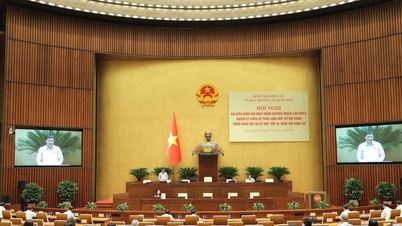

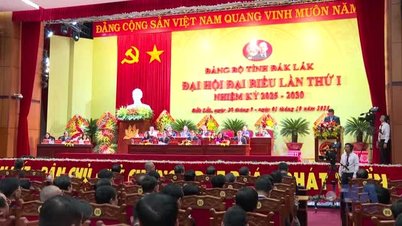

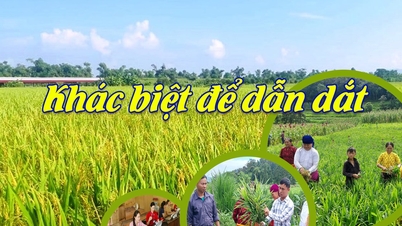
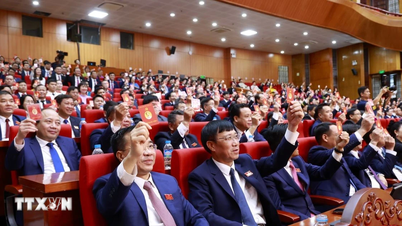





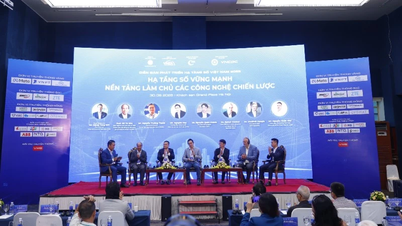
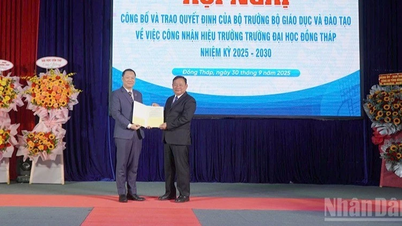















































![[Infographic] Key tasks in the 2025-2030 term of Dong Nai province](https://vphoto.vietnam.vn/thumb/402x226/vietnam/resource/IMAGE/2025/9/30/59bd43f4437a483099313af036fef0db)



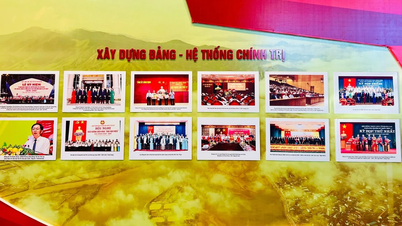


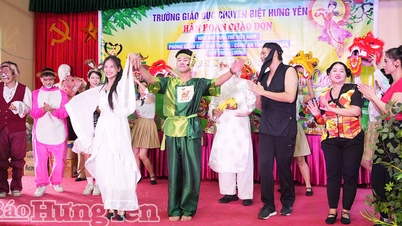

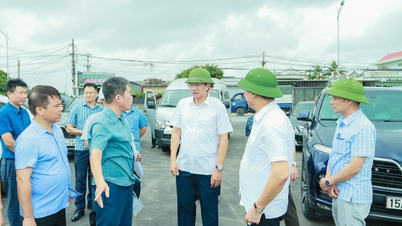















Comment (0)